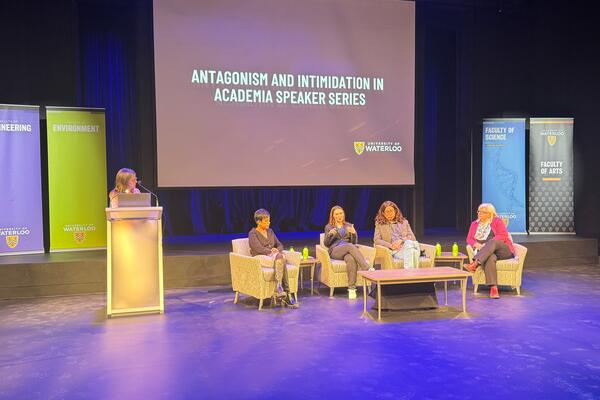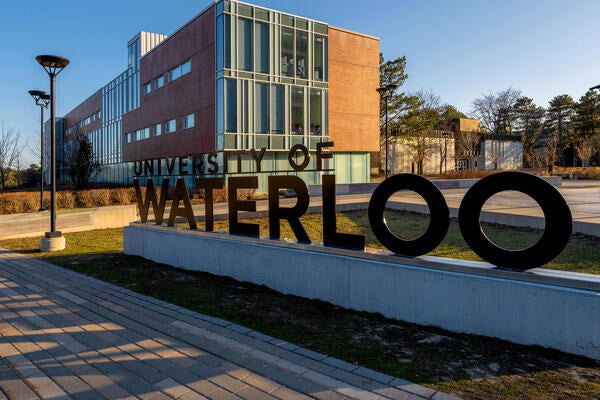
Virtual tool helps citizens and municipalities collaborate on urban planning
Researchers at the University of Waterloo have helped to develop a toolkit that will help municipalities, experts and community members to plan smart cities together

Researchers at the University of Waterloo have helped to develop a toolkit that will help municipalities, experts and community members to plan smart cities together
By Media RelationsResearchers at the University of Waterloo have helped to develop a toolkit that will help municipalities, experts and community members to plan smart cities together.
The new toolkit launched by the City as a Platform Lab at Waterloo along with their US collaborators will help communities use data and technology to improve efficiency, sustainability, economic development and quality of life in urban areas.
“Civic engagement must be part of a smart city if it is to be a city of innovation, generosity, play, and opportunity,” says Beth Coleman, Director of the City as Platform Lab and Associate Professor in Experimental Digital Media at the University of Waterloo. “We need a better framework for collaboration and trust across sectors.”
Piloted in early 2018, the “Making a Civic Smart City” project is a collaboration between the Engagement Lab at Emerson College, the City as Platform Lab at the University of Waterloo, the Center for Smart Cities and Regions at Arizona State University, and the Berkman Klein Center for Internet & Society at Harvard University, with funding from the John S. and James L. Knight Foundation.
As part of the effort, the researchers hosted a “Right to the Smart City: Designing for Public Value and Civic Participation” symposium (Berkman Klein Center for Internet & Society, Harvard University March 22 and 23, 2018), stakeholders from academia, government and the private sector from across North America. The symposium resulted in the development of a whitepaper in addition to the toolkit that highlighted five major areas or “plays” that should be addressed by any organization looking to engage the public on technology decisions.
The areas include:
1. Embracing smart cities (for example, embracing the smart city frame as an op¬portunity to highlight what matters in your place).
2. Cultivating local innovation ecosystems (such as seeking partnerships with local universities and cultivating data literate publics to provide critical input and innovation).
3. Inviting public influence (such as including local expertise, and assuring expectations are equitable, especially for at-risk communities).
4. Questioning data (thinking critically about how, when, and why to collect and use data, for instance).
5. Designing for play and civic imagination (including experimenting with new, immersive forms of storytelling, sourced from citizens,
While the project team plans to hold Smart City workshops in Boston, Philadelphia and Detroit, the interactive toolkit includes materials that any organization can use to hold their own one-day Smart City workshop.
“Stewardship from a multi-vector perspective (government, industry, and civic engagement) is critical if we are serious about ideas such as “inclusive” and “transparent” urban infrastructure design,” says Coleman.
Read the white paper Making a Civic Smart City whitepaper (PDF) and explore the Making a Civic Smart City website.

Read more
University of Waterloo researchers discuss the challenges faced by researchers amid rising antagonism in climate science discourse

Read more
Waterloo announces winners of annual award for co-op students from each of the six faculties

Read more
Fifty-six researchers receive Government of Canada funding to solve some of humanity’s most critical problems
The University of Waterloo acknowledges that much of our work takes place on the traditional territory of the Neutral, Anishinaabeg and Haudenosaunee peoples. Our main campus is situated on the Haldimand Tract, the land granted to the Six Nations that includes six miles on each side of the Grand River. Our active work toward reconciliation takes place across our campuses through research, learning, teaching, and community building, and is co-ordinated within the Office of Indigenous Relations.